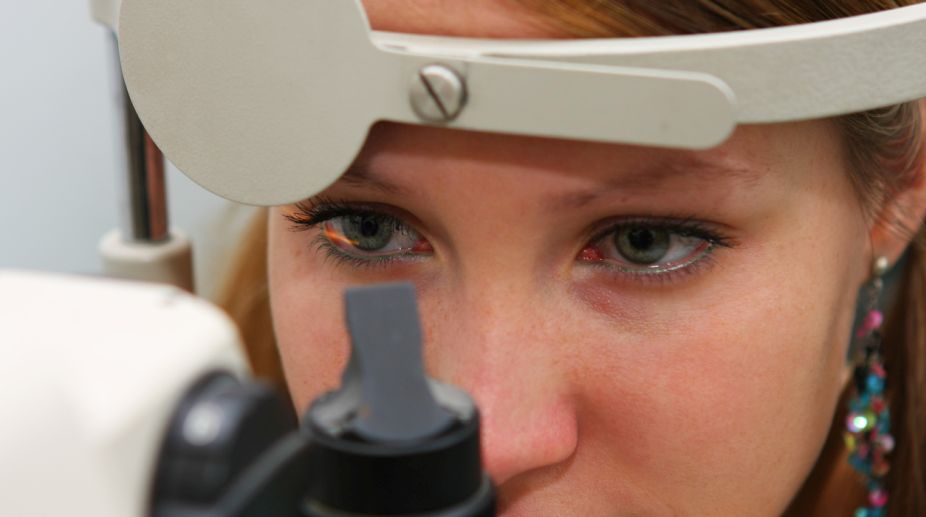Eyebetes Foundation leads vision-saving drive at Maha Kumbh 2025
Led by Dr. Nishant Kumar, the initiative offers tests, prescription glasses, and awareness to combat diabetes-induced blindness. Details inside.

Representational Image (Photo: Getty)
Researchers have developed a simple eye test that could help solve the biggest global cause of irreversible blindness, glaucoma, by detecting the onset of the disease at a very early stage.
Loss of sight in patients with glaucoma is caused by the death of cells in the retina at the back of the eye. This cell death is called apoptosis.
Advertisement
The new technique called DARC stands for detection of apoptosing retinal cells.
Advertisement
It uses a specially developed fluorescent marker which attaches to cell proteins when injected into patients. Sick cells appear as white fluorescent spots during eye examination.
In clinical trials, the pioneering diagnostic — developed by researchers at the University College London (UCL) and the Western Eye Hospital in England — allowed doctors to see individual nerve cell death in the back of the eye.
"Detecting glaucoma early is vital as symptoms are not always obvious. Although detection has been improving, most patients have lost a third of vision by the time they are diagnosed," said led researcher Professor Francesca Cordeiro of the UCL Institute of Ophthalmology.
"Now, for the first time, we have been able to show individual cell death and detect the earliest signs of glaucoma. While we cannot cure the disease, our test means treatment can start before symptoms begin."
Glaucoma affects an estimated 60 million people in the world, with one in 10 suffering total sight loss in both the eyes.
Initial clinical trials were carried out on a small number of glaucoma patients and compared with tests on healthy people. The initial clinical trials established the safety of the test for patients, according to a study published in the journal BRAIN.
The researchers believe the test has potential for early diagnosis of other degenerative neurological conditions, including Parkinson's, Alzheimer's and multiple sclerosis.
"In the future, the test could also be used to diagnose other neuro-degenerative diseases," Cordeiro said.
Advertisement
Led by Dr. Nishant Kumar, the initiative offers tests, prescription glasses, and awareness to combat diabetes-induced blindness. Details inside.
This will be the first time in history that eye tests will be conducted for 500,000 people, and 300,000 glasses will be distributed at the same event.
While India has the maximum number of blind people in the world, most do not know that in more than 85 per cent of the cases, the condition is preventable, said experts on Thursday on World Sight Day.
Advertisement
